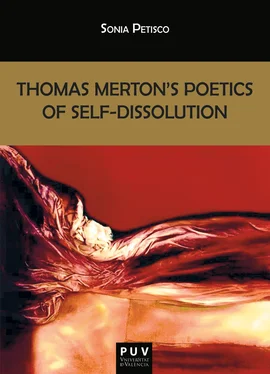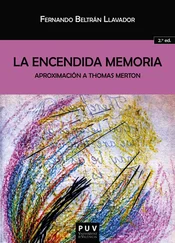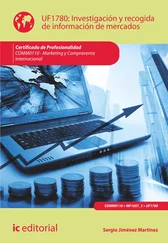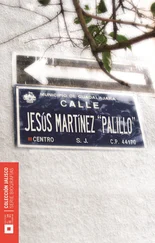Sonia Petisco Martínez - Thomas Merton's Poetics of Self-Dissolution
Здесь есть возможность читать онлайн «Sonia Petisco Martínez - Thomas Merton's Poetics of Self-Dissolution» — ознакомительный отрывок электронной книги совершенно бесплатно, а после прочтения отрывка купить полную версию. В некоторых случаях можно слушать аудио, скачать через торрент в формате fb2 и присутствует краткое содержание. Жанр: unrecognised, на английском языке. Описание произведения, (предисловие) а так же отзывы посетителей доступны на портале библиотеки ЛибКат.
- Название:Thomas Merton's Poetics of Self-Dissolution
- Автор:
- Жанр:
- Год:неизвестен
- ISBN:нет данных
- Рейтинг книги:5 / 5. Голосов: 1
-
Избранное:Добавить в избранное
- Отзывы:
-
Ваша оценка:
- 100
- 1
- 2
- 3
- 4
- 5
Thomas Merton's Poetics of Self-Dissolution: краткое содержание, описание и аннотация
Предлагаем к чтению аннотацию, описание, краткое содержание или предисловие (зависит от того, что написал сам автор книги «Thomas Merton's Poetics of Self-Dissolution»). Если вы не нашли необходимую информацию о книге — напишите в комментариях, мы постараемся отыскать её.
Thomas Merton's Poetics of Self-Dissolution — читать онлайн ознакомительный отрывок
Ниже представлен текст книги, разбитый по страницам. Система сохранения места последней прочитанной страницы, позволяет с удобством читать онлайн бесплатно книгу «Thomas Merton's Poetics of Self-Dissolution», без необходимости каждый раз заново искать на чём Вы остановились. Поставьте закладку, и сможете в любой момент перейти на страницу, на которой закончили чтение.
Интервал:
Закладка:
Silence is louder than a cyclone
In the rude door, my shelter
[…] I eat my air alone
With pure and solitary songs
While others sit in conference
[…] I no longer see their speech
And they no longer know my theatre. 24
Merton becomes an exile in the far end of solitude, living as a listener and praying for a world which is tumbling down, “for a land without prayer.” 25Nevertheless, this dualism between the sacred and the profane sphere present in The Tears… would be partially overcome in The Strange Islands (1957) when the poet talks about the possibility of building a new Jerusalem on the Ohio shores: “Gather us God in Honeycombs,/My Israel in the Ohio valley!/For brightness falls upon our dark/[…] Bless and restore the blind, straighten the broken limb/These mended stones shall build Jerusalem.” 26Although the book cannot boast of a deep lyricism or a formal complexity, it illustrates a much more committed and critical poetry which hopes for a radical transformation of humankind and, thus, of the whole society. It was written at a time in Merton’s life when, as we have just pointed out, he felt a more profound necessity to go into solitude, 27but also saw the urgency to open a dialogue with the world outside the walls of Gethsemani.
However, in this collection the contradictions between nature and civilization, freedom and social structures are still present in some of the poems. There is a strong criticism of the bad and dangerous working conditions of employees in the technological age, as well as a depiction of the chaotic life in the metropolis, where the identities of the inhabitants have been distorted by consumerist mirages:
Everywhere there is optimism without love
And pessimism without understanding.
They who have new clothes and smell of haircuts
Cannot agree to be at peace
With their own images, shadowing them in windows
From store to store. 28
Although this dualistic attitude is still accompanied by a condemnation of the vanities and absurdities of the world, nevertheless, in this collection, unlike in previous books, Merton does not try to evade or deny it. On the contrary, he tries to redeem and transform it, moved as he was by a great compassion which might have been motivated by his approach at that time to the Oriental religions, most particularly to Zen Buddhism. His poem “Elias–Variation on a Theme” is precisely a meditation on his double vocation, the contemplative one and the active one, as well as an attempt to reconcile two apparently opposed inner tendencies: on the one hand, his need for contemplative solitude; and on the other hand, the urge to a revolutionary action in the midst of an individualistic divided world. From this lyrical piece, one can deduce that he conceived solitude not as sterile self-isolation but as a path to real communion. As he would write some years later, during the sixties, “the true solitary does not seek himself, but loses himself. He forgets that there is number in order to become all […] He is attuned to all the Hearing in the world, since he lives in silence.” 29
By making an inner journey towards what he called “the inward Stranger,” Merton could overcome all divisions and paradoxes within himself and open up to an awareness of interbeing. 30As he wrote in the poem “In Silence”:
And all things live around you
Speaking to your own being.
Speaking by the Unknown
That is in you and in themselves. 31
Everything speaks about God, and God speaks in all and through all. The poet encourages us to enter a sonorous solitude which, far from secluding men from the rest of people, awakens in them a new perception based on the certainty that we are united to one another by a unique Love, “God’s love living and acting in those whom He has incorporated in his Christ.” 32
At the beginning of the sixties, Merton began to speak about a wide range of contemporary problems, advocating peace and social justice in a season characterized by social and political unrest and deep emptiness of spirit. He considered he could not ignore horrors such as nazism in Germany, the Vietnam war, the Hiroshima disaster, or the latent threat of a nuclear war. All these bad dreams, – “the dreams of giants without a center” 33– were dealt with in his books of poetry Original Child Bomb (1962) and Emblems of a Season of Fury (1963), where he strongly denounced the illogical and nonsensical attempt to establish peace through war. Compositions such as “And the Children of Birmingham” shows Merton’s defence of non-violent action exemplified in the strike that black children and young people held in the city of Birmingham with Martin Luther King as the leader of the pacifist movement against racial, political and economic discrimination. 34
Additionally, he wrote poems supporting the most marginal people. In “There Has to Be a Jail for Ladies” he empathises with the misfortune of prostitutes (“I love you, dusty and sore/I love you, unhappy ones”), and in “A Picture of Lee Ying” with the thousands of Chinese refugees during the communist government of Mao Tse-Tung. “Chant to be Used in Processions around a Site with Furnaces” also evokes the terrible suffering of the Jews in the concentration camps during the nazi regimen and criticizes the insane attitude of people such as Adolf Eichman who came to be convinced that his work of extermination was efficient and satisfactory: “In my day we worked hard we saw what we did our/self-sacrifice was conscientious and complete our work/was faultless and detailed.” 35
To sum up, in Emblems… Merton did break his silence with such a cry as he had always been afraid of. In his opinion, Christian hope was “inseparable from an incarnational development in the struggle of living and contemporary man.” 36Therefore, he reconciled his contemplative vocation with his responsibility as social critic and prophet who announces and denounces the crepuscular hours of history, calling us to recover our original unity and integrity in the wisdom of Love and of the Cross. 37
The subversive component of his poetry is still pervasive in his last two books. Influenced by the theories of Herbert Marcuse and his attack on the functional discourse of a unidimensional society, in Cables to the Ace (1968), he focuses on the trivialization of language and the death of the symbol in our modern times. As George Woodcock has pointed out, this long poem is “the antipoetic diagnosis of the world’s ills, accompanied by a poetic prescription for its cure.” 38Written in a style which lacks all kind of literary ornaments, it could be described as a radical experiment with the language of alienation and its subsequent transfiguration in a new poetry, an antipoetry, characterized by the absence of metrics and rhyme, the abandonment of conventional syntax, and the break of the linear and chronological sequence of the text in the manner of modernist authors such as T.S. Eliot or Ezra Pound.
The Geography of Lograire (1968) also questions the alienated and alienating discourse of the Western myth, whose oppressive power has always been imposed on other cultures, considered as inferior, such as the Sioux, Mayans or Melanesians. 39Like Cables this epic poem appears as a denunciation of the mental and linguistic habits of our philosophical, religious, political and cultural heritage, and it calls for a new sensitivity which can act as a guidance for a reinterpretation of the word “man” and the word “Life.”
As Anthony Padovano has suggested, the four “Cantos” tell “the history of a human family tragically torn asunder but pathetically persistent in its dream for harmony.” 40They present a world threatened by wars, genocide, poverty and degradation, but they are also an evidence of Merton’s hope for a spiritual revolution which may reveal to us the path to unbounded life and sincere union beyond the collective illusion of division and separateness. As a matter of fact, the whole poem is about unity, final integration and it places emphasis on the oneness of all existence: 41“same is the Ziggurat of everywhere/I am one same burned Indian/purple of my rivers is the same shed blood/all is flooded/all is my Vietnam charred/charred by my co-stars/the flying generals.” 42
Читать дальшеИнтервал:
Закладка:
Похожие книги на «Thomas Merton's Poetics of Self-Dissolution»
Представляем Вашему вниманию похожие книги на «Thomas Merton's Poetics of Self-Dissolution» списком для выбора. Мы отобрали схожую по названию и смыслу литературу в надежде предоставить читателям больше вариантов отыскать новые, интересные, ещё непрочитанные произведения.
Обсуждение, отзывы о книге «Thomas Merton's Poetics of Self-Dissolution» и просто собственные мнения читателей. Оставьте ваши комментарии, напишите, что Вы думаете о произведении, его смысле или главных героях. Укажите что конкретно понравилось, а что нет, и почему Вы так считаете.












